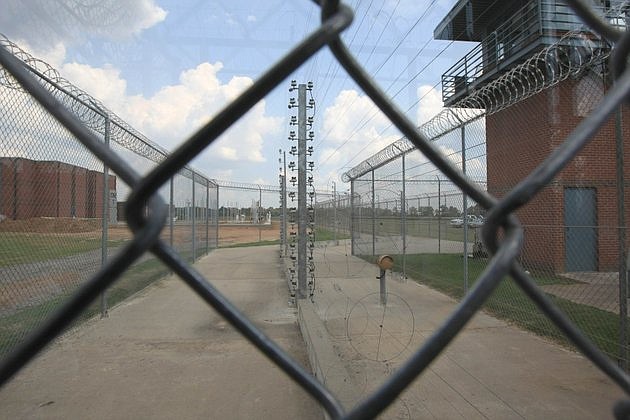More than 3,500 Arkansas corrections workers will see pay raises under a new salary schedule, but officials cautioned that the pay bumps aren't sustainable unless the agency sees an increase in revenue from the state.
The Arkansas Board of Corrections approved Friday two separate salary grids that will cost the prison agency more than $25 million annually. The estimated cost for the remainder of this fiscal year -- which began July 1 and ends June 30 -- is roughly $11.5 million.
The new salary schedule is meant to decrease turnover and solve the substantially reduced pay gap between higher-level corrections staff and lower-level staff.
Correctional staffers will start to see the payments just before Christmas.
The agency will pay the proposed plan this year with salary savings and previously certified special revenue.
"I need to be very clear with the board. We cannot sustain this plan without additional revenue," Solomon Graves, secretary of the Department of Corrections, said at the meeting. "We will be having conversations with the Governor's office and hopefully talking this legislative session about this issue."
Benny Magness, chairman of the Board of Corrections, said he has heard some indications the topic of additional revenue could be on the radar of the legislators in the near future.
The Arkansas Legislative Council's personnel subcommittee approved in June a self-funded salary schedule for state employees in grades GS01-GS05. Department of Finance and Administration officials said the adjustment was needed due to increasing turnover and the need to attract and retain personnel in these grade levels.
"We delayed implementation as we reviewed what the effect would be on the department," Graves said.
Graves said the Department of Corrections doesn't have any GS01 positions, but 2,234 employees will benefit from the Legislature-initiated action.
However, Graves said that plan creates salary-compression among higher-graded supervisory positions. Due to this, Graves said the agency needed to implement a salary compression grid for grades GS06-GS10 for uniformed staff, mental health/treatment staff, parole/probation officers, deputy wardens, assistant area managers and area managers.
"Grades 6 through 10 will receive the adjustment if they are in a security classification," Graves said.
This compression salary grid approval will benefit almost 1,500 employees, documents show.
Graves said this increase in compensation is partly made possible due to the agency having just over 1,300 vacant GS05 corporal positions out of 2,477 authorized positions. He also said the Division of Community Corrections has 96 vacant GS05 corrections officer/corporal positions out of 260 authorized positions.
The approximate cost for the Division of Corrections will be $17,010,486. The approximate cost for the Division of Community Corrections will be $8,035,063.38. The approximate cost for the Parole Board will be $24,588.62, and the cost for Shared Services will be $803,990.31.
Graves called the two approved raise plans imperfect.
"We would like to do more, but that is not feasible at the moment," he said. "The whole purpose of this plan is to stem the tide of losing staff to other opportunities but to also make us more competitive in this job market that has been influenced by the pandemic."
The department has 4,251 employees, and these measures will benefit about 3,734 staff members.
Graves said because of the lack of funds available to the department it had to make some uncomfortable decisions on who gets the compensation increase.
"It won't please everyone," he said. "I would have loved to talk to y'all about adjustment to all positions, but we aren't able to do that. We had to draw some uncomfortable lines. I know there are ongoing conversations about the pay plan on a statewide basis. I view this as a temporary stop gap as those discussions continue."
